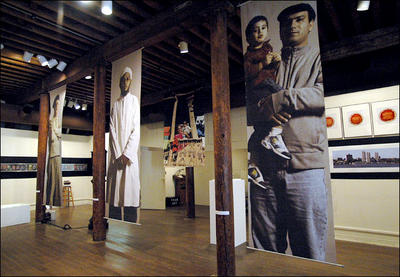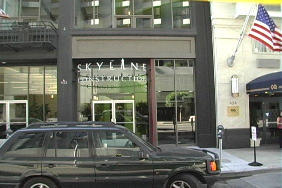
With another Supreme Court battle looming, this time over Harriet Miers, let's acknowledge something up front: Republicans are right to complain about judicial activism.
One of the most fundamental mistakes that liberals made after World War II was, time after time, to seek social progress through the courts rather than through the political process.
It started well, with the Warren Court's unanimous decision in Brown v. Board of Education to force the desegregation of schools. That decision was so manifestly right -- and alternative routes to justice so manifestly broken -- that court rulings then became the liberal template for achieving a more humane society.
The left went to the Supreme Court to achieve a range of victories it could never have managed through the political process: barring school prayer, protecting protesters who used four-letter words, guaranteeing lawyers for criminal defendants, and securing a right to privacy that protected contraception and abortion.
It's almost taken for granted on the left that if you support abortion rights, you must have agreed with Roe v. Wade, or if you support gay rights, you must favor court rulings endorsing gay marriage. But court rulings can constitute fine justice and bad law.
Archibald Cox, the great constitutional lawyer, yearned for social progress but was troubled by constitutional stretching. For example, when other avenues were unavailable, the Supreme Court used the 13th Amendment, which simply banned slavery, to bar private discrimination against blacks. It was a worthy outcome, achieved by torturing the Constitution.
Don't get me wrong: I agree with the spirit of the Warren Court decisions, and as a kid I worshiped William Douglas the way my friends worshiped Hank Aaron (I was an insufferable child). I saw how court rulings could affect our lives: my high school in rural Oregon banned teachers and students from having facial hair, until the A.C.L.U. took up the case -- and the school caved.
So, granted, the courts were often the most efficient way to advance a liberal agenda, and cases like Roe v. Wade now deserve respect as precedents. But there were two problems with the activist approach.
The first was that these rulings alienated ordinary Americans who just could not see how the Constitution banned school prayers but protected obscenities. Frustration still seethes at liberals who try to impose their values on the heartland, and one consequence has been the rise of the religious right.
The second objection is that conservatives can play the same game of judicial activism to advance a social agenda. Alas, they already are.
''Judicial activism'' is usually associated with liberals, but Paul Gewirtz of Yale Law School has shown that lately conservatives have been far more likely to strike down laws passed by Congress. Clarence Thomas voted to invalidate 65 percent of the laws that came before him in cases, while those least likely to do so were Ruth Bader Ginsburg and Stephen Breyer. Indeed, Justice Breyer has written a thoughtful new book, ''Active Liberty,'' which calls for judicial restraint and suggests that the best arena for resolving crucial national questions is legislatures rather than courts.
A growing number on the left are questioning the traditional idea of using courts to achieve a more liberal society. Justice Ginsburg, in her Senate hearings, even criticized the scope of Roe v. Wade for short-circuiting the legislative process: ''My view is that if Roe had been less sweeping, people would have accepted it more readily, would have expressed themselves in the political arena in an enduring way on this question.''
In the magazine of the Democratic Leadership Council, Prof. William Galston warned:
''We must acknowledge that as a party, we have opened ourselves to charges of elitism. We cannot be an effective party if we substitute litigation for mobilization. We cannot be a democratic party if we do not trust the people.''
That doesn't mean blindly trusting Ms. Miers or any other Supreme Court nominee. But it does mean that the main mode for seeking a more liberal agenda, such as permitting gay marriage or barring public displays of the Ten Commandments, should be the democratic process, not the undemocratic courts. And it also suggests that the Republicans are dead right to fret about judicial activism -- and we should hold them to their word.

























